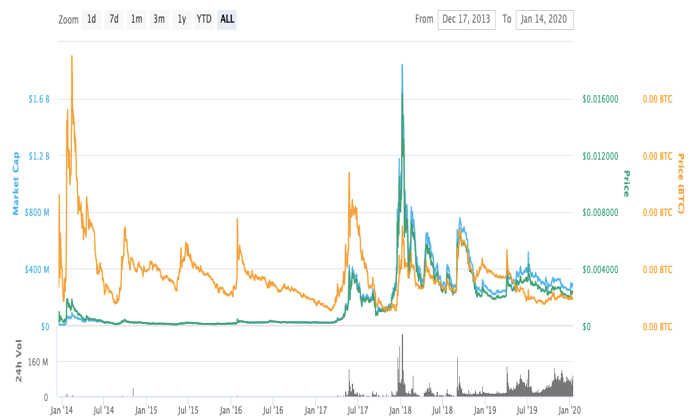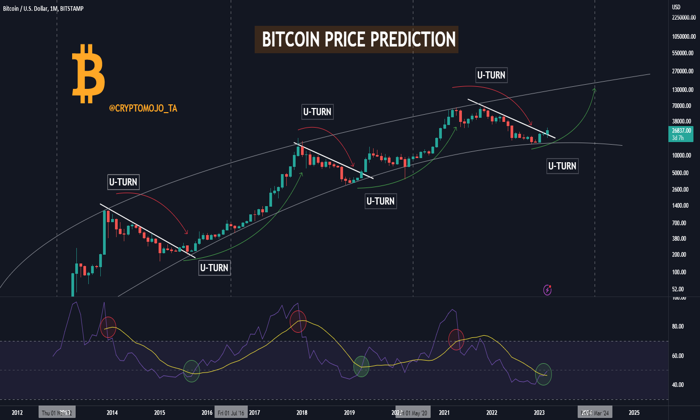As the U.S. government considers implementing significant tariffs on European products, the implications for tariffs and cryptocurrencies are becoming increasingly pronounced. President Trump’s proposed 25% tariffs could trigger a new trade war, sending shockwaves through the crypto market reaction. With major cryptocurrencies like Bitcoin and Ethereum witnessing sharp declines, investors are left to ponder whether these volatile crypto assets will prove to be a safe haven amidst economic turmoil. The ongoing European trade war raises questions about liquidity and market stability, as traders grapple with the potential fallout from these tariffs. As history suggests, geopolitical tensions often create initial instability but may ultimately lead to increased interest in cryptocurrencies as investors look for alternative stores of value.
In the backdrop of potential trade barriers, the intersection of international trade policies and digital currencies is drawing attention. The looming threat of tariffs could reshape the landscape for blockchain assets, prompting traders to reassess their strategies. With the possibility of heightened economic instability, many are exploring how these financial tools can serve as a buffer against traditional market fluctuations. The debate over the impact of such tariffs on the crypto economy is crucial, as it opens discussions on the role of digital currencies during times of geopolitical strife. As the situation unfolds, understanding the implications of these trade policies on cryptocurrencies becomes essential for investors seeking to navigate this complex financial terrain.
Impact of Trump Tariffs on European Trade Relations
The announcement of 25% tariffs on European products by President Trump has raised serious concerns about the future of transatlantic trade relations. Many analysts predict that this move could ignite a new European trade war, which would not only impact traditional markets but also have far-reaching implications for the global economy. The European Commission has vowed to respond ‘swiftly and vigorously,’ indicating that retaliation is on the table. This kind of economic conflict typically leads to increased volatility in financial markets, creating an atmosphere of uncertainty that could spill over into various sectors, including cryptocurrencies.
Historically, trade wars have resulted in significant market fluctuations, and the current situation could be no different. Investors are wary, as past instances reveal that such geopolitical tensions can lead to a sell-off in riskier assets. The automotive industry, heavily reliant on imports and exports, is particularly vulnerable to these tariffs. As European manufacturers brace for potential losses, the ripple effects may lead to a decline in consumer confidence, further stoking fears of an economic downturn.
Cryptocurrency Market Reaction to Tariffs
The cryptocurrency market is currently facing a downward trend, heavily influenced by the uncertainty stemming from Trump’s tariff announcements. Major cryptocurrencies such as Bitcoin and Ethereum have witnessed significant price drops, reflecting investors’ anxiety about the potential economic impact of a trade war. Market data indicates that Bitcoin has fallen to $85,896, while Ethereum has dipped to $2,349. These losses indicate a broader reluctance among investors to engage with volatile crypto assets during times of economic uncertainty, leading to a cautious approach to investment in this space.
The reaction of the crypto market to the tariffs could be interpreted as a reflection of broader economic sentiments. Investors typically seek safe havens when faced with uncertainty, which raises the question of whether Bitcoin could serve as a protective asset in this scenario. The idea of Bitcoin as a safe haven has gained traction, especially when traditional markets face turbulence. If the trade war escalates and the value of traditional currencies like the euro and dollar weakens, cryptocurrencies may experience increased demand as investors look to shield their assets from volatility.
The Dual Impact of Trade Wars on Cryptocurrencies
The potential trade conflict between the U.S. and EU presents a dual-edged sword for cryptocurrencies. On one hand, increased tariffs may lead to a decline in stock markets, prompting investors to pull away from riskier assets like cryptocurrencies, which could exacerbate the downward pressure on prices. As the economic landscape shifts, many may choose to limit their exposure to volatile assets, resulting in further selling pressure across the crypto market, especially for altcoins that are already struggling.
Conversely, if the trade tensions lead to a depreciation of the euro and dollar, cryptocurrencies might emerge as appealing stores of value. Bitcoin, in particular, has often been viewed as a hedge against inflation and currency devaluation. Historical patterns from previous trade wars indicate that while initial instability may contribute to a dip in crypto prices, the subsequent recovery often sees increased demand for cryptocurrencies, especially as investors seek alternatives to traditional fiat currencies.
Bitcoin: A Safe Haven Amid Economic Turbulence?
In the face of economic turmoil fueled by tariffs and trade wars, Bitcoin has often been positioned as a safe haven asset. This perspective stems from its decentralized nature and limited supply, characteristics that appeal to investors seeking stability when traditional markets falter. As tariffs potentially weaken the euro and dollar, investors may increasingly turn to Bitcoin as a means of preserving value. The notion of Bitcoin as a ‘digital gold’ has gained traction, especially in light of historical performance during periods of economic uncertainty.
The current market sentiment suggests that investors are weighing the risks and opportunities associated with Bitcoin. While recent price declines can be alarming, the long-term outlook remains cautiously optimistic for Bitcoin as it may serve as a refuge during challenging economic climates. As the situation evolves, many are closely monitoring the crypto market’s response to ongoing trade tensions, with the hope that Bitcoin will solidify its position as a reliable store of value.
Navigating the Volatile Crypto Market
As the crypto market grapples with the implications of Trump’s tariffs, navigating this volatility requires a strategic approach. Investors must remain vigilant, continuously analyzing market trends and geopolitical developments that could influence asset prices. The current downturn is not merely a reflection of market sentiment but also a response to broader economic indicators. Understanding the potential correlation between trade policies and crypto asset performance is crucial for making informed investment decisions.
Moreover, in times of instability, utilizing a reliable wallet for managing cryptocurrencies becomes essential. The Best Wallet offers secure storage and easy access to various cryptocurrencies, allowing investors to buy and store Bitcoin, Ethereum, and others with confidence. By ensuring secure management during turbulent times, investors can protect their assets and position themselves for potential gains as the market stabilizes.
The Role of the Best Wallet in Crypto Management
During periods of market volatility, having a reliable wallet is crucial for effective cryptocurrency management. The Best Wallet is designed with multiple features that enhance security and usability, making it an ideal choice for both novice and experienced investors. With secure storage options, including Multi-Party Computation (MPC), users can rest assured that their assets are well-protected against potential threats.
Additionally, the Best Wallet facilitates easy transactions, allowing users to buy Bitcoin, Ethereum, and other cryptocurrencies directly through the app. The wallet’s multi-chain functionalities enable seamless management of diverse crypto assets, making it a versatile tool in an investor’s arsenal. As the market shifts due to economic influences such as tariffs, having a dedicated wallet can help mitigate risks while providing opportunities for growth in the cryptocurrency space.
Potential Opportunities Amidst Trade Uncertainty
While the prospect of tariffs and trade wars brings significant concerns, it also opens a window of opportunity for discerning investors. The current downturn in cryptocurrency prices may present a favorable entry point for those looking to invest in Bitcoin and other digital assets. Historically, market recoveries following geopolitical tensions have often led to increased demand for cryptocurrencies, as investors seek alternatives to fiat currencies.
As the landscape evolves, savvy investors who can identify the potential for growth amidst uncertainty may find that the long-term benefits of investing in cryptocurrencies outweigh the short-term volatility. Bitcoin, in particular, may emerge as a significant asset as economic conditions fluctuate, making it crucial for investors to stay informed and ready to act on emerging opportunities.
The Future of Cryptocurrencies in a Tariff-Driven Economy
Looking ahead, the future of cryptocurrencies will likely be influenced by ongoing trade policies and tariffs. As countries navigate the complexities of international trade, the crypto market must adapt to these changing dynamics. Investors should closely monitor how tariff impositions affect market stability and the overall economic climate. The adaptability of cryptocurrencies in the face of such challenges will determine their resilience and growth potential.
Furthermore, as cryptocurrencies gain mainstream acceptance, their role as a hedge against economic instability may become more pronounced. The possibility that Bitcoin and other digital currencies could serve as a refuge during economic downturns positions them uniquely in the financial landscape. As investors grapple with the implications of tariffs, the evolution of cryptocurrencies in a tariff-driven economy will be a critical narrative to watch in the coming months.
Preparing for Market Volatility: Strategies for Investors
In light of the potential for increased market volatility due to tariffs and trade wars, investors must develop strategies to navigate this unpredictable environment. Diversification remains a key principle, allowing investors to spread risk across multiple assets, including cryptocurrencies. By maintaining a well-balanced portfolio, investors can better endure the fluctuations that may arise in both traditional and digital markets.
Additionally, staying informed about global economic developments and their potential impacts on cryptocurrencies is essential. Engaging with reliable news sources and analyses can provide valuable insights, enabling investors to make proactive decisions. As market conditions evolve, those who are prepared and adaptable will be best positioned to capitalize on the opportunities that arise amidst the challenges presented by tariffs and trade tensions.
Frequently Asked Questions
How do Trump tariffs impact the cryptocurrency market?
Trump’s proposed tariffs on European products could create economic uncertainty, leading to increased volatility in the crypto market. As stock markets may react negatively, investors might pull back from riskier assets like cryptocurrencies, causing potential downward pressure on prices.
What is the crypto market reaction to the European trade war?
The crypto market has reacted negatively to the potential European trade war, with major cryptocurrencies experiencing significant price drops. This downturn is influenced by investor anxiety over economic stability and liquidity concerns, pushing many to reconsider their crypto investments.
Is Bitcoin a safe haven during tariff-related economic uncertainty?
Yes, Bitcoin is often viewed as a safe haven asset during times of economic uncertainty, such as when tariffs are imposed. Investors may turn to Bitcoin to protect their wealth from potential declines in traditional markets resulting from trade tensions.
What are volatile crypto assets and how are they affected by tariffs?
Volatile crypto assets like Bitcoin and Ethereum are highly sensitive to economic news, including tariffs. Such trade barriers can lead to market panic, resulting in price fluctuations and increased volatility, as investors react to the changing economic landscape.
How might tariffs influence the demand for Bitcoin and other cryptocurrencies?
While tariffs may initially cause market instability, historical trends suggest that such geopolitical events can eventually increase demand for cryptocurrencies. Investors seeking to hedge against currency fluctuations may turn to Bitcoin and other digital assets as a store of value.
What should investors consider about crypto during tariff negotiations?
Investors should be aware that tariffs can lead to market volatility and economic uncertainty, impacting liquidity in the crypto market. It’s essential to monitor developments closely, as these factors can influence the price movements of cryptocurrencies like Bitcoin and Ethereum.
What are the implications of tariffs for crypto wallet security?
During unstable economic conditions created by tariffs, securing your cryptocurrency investments is crucial. Using a reliable crypto wallet, such as the Best Wallet, can provide secure storage and management options for your digital assets amid market fluctuations.
What strategies can investors use to navigate the crypto market during tariff-related volatility?
Investors can adopt strategies like diversifying their crypto portfolio, using secure wallets for storage, and staying informed about market reactions to tariff news. Additionally, considering Bitcoin as a potential safe haven during economic downturns may also be beneficial.
| Aspect | Details |
|---|---|
| Tariffs Proposal | U.S. President Trump is considering a 25% tariff on European products, primarily affecting the automotive industry. |
| Response from EU | The European Commission plans to respond ‘swiftly and vigorously’ to any new trade barriers. |
| Impact on Crypto Market | The announcement has led to a downward trend in the cryptocurrency market, with significant losses recorded. |
| Bitcoin (BTC) Performance | BTC price fell to $85,896 with a daily drop of 0.63% and a weekly loss of 11.42%. |
| Ethereum (ETH) Performance | ETH is priced at $2,349, experiencing a 4.68% decrease over the last week. |
| Solana (SOL) Performance | SOL has dropped 18.69% in the last week due to market pressures. |
| XRP Performance | XRP trades at $2.20, with weekly losses of 18.01%. |
| Future Outlook | If tariffs lead to stock market declines, crypto investments may be limited. However, if the dollar and euro weaken, Bitcoin could be viewed as a safe haven. |
| Historical Context | Previous trade wars have shown that instability can lead to increased demand for cryptocurrencies. |
| Best Wallet Features | Offers secure storage, multi-chain functionalities, and easy management of cryptocurrencies. |
Summary
Tariffs and cryptocurrencies are at a critical juncture as President Trump’s proposed 25% tariffs on European goods are expected to impact the market significantly. The uncertainty surrounding these tariffs has already led to a decline in major cryptocurrencies, reflecting investor anxiety about economic stability. As the situation evolves, it remains to be seen whether cryptocurrencies will serve as a safe haven or continue to face downward pressure in the wake of potential trade wars.
Tariffs and cryptocurrencies are at the forefront of current economic discussions, particularly in light of President Trump’s recent announcement regarding a potential 25% tariff on European imports. This decision has sparked fears of a European trade war, causing not only immediate concerns for the automotive industry but also a ripple effect through the financial markets. As the crypto market reaction unfolds, many investors observe significant declines in volatile crypto assets, including Bitcoin and Ethereum. While tariffs may threaten traditional markets, they also raise the question of whether cryptocurrencies like Bitcoin could emerge as a safe haven amidst economic instability. The interplay between Trump tariffs impact and the crypto market could redefine investment strategies in an already tumultuous financial landscape.
The ongoing debate about trade barriers and digital currencies is gaining traction, especially as the prospect of tariffs looms large. With the potential for escalating tensions between the U.S. and European nations, many are questioning how these trade restrictions will affect the landscape for virtual currencies. As traditional markets react, the allure of cryptocurrencies as alternative assets becomes increasingly apparent. Investors are keenly observing the shifts in market sentiment, particularly regarding Bitcoin’s role as a protective measure against economic uncertainty. The dynamics between imposed tariffs and the response of the crypto sector could lead to new investment opportunities in an evolving financial ecosystem.














